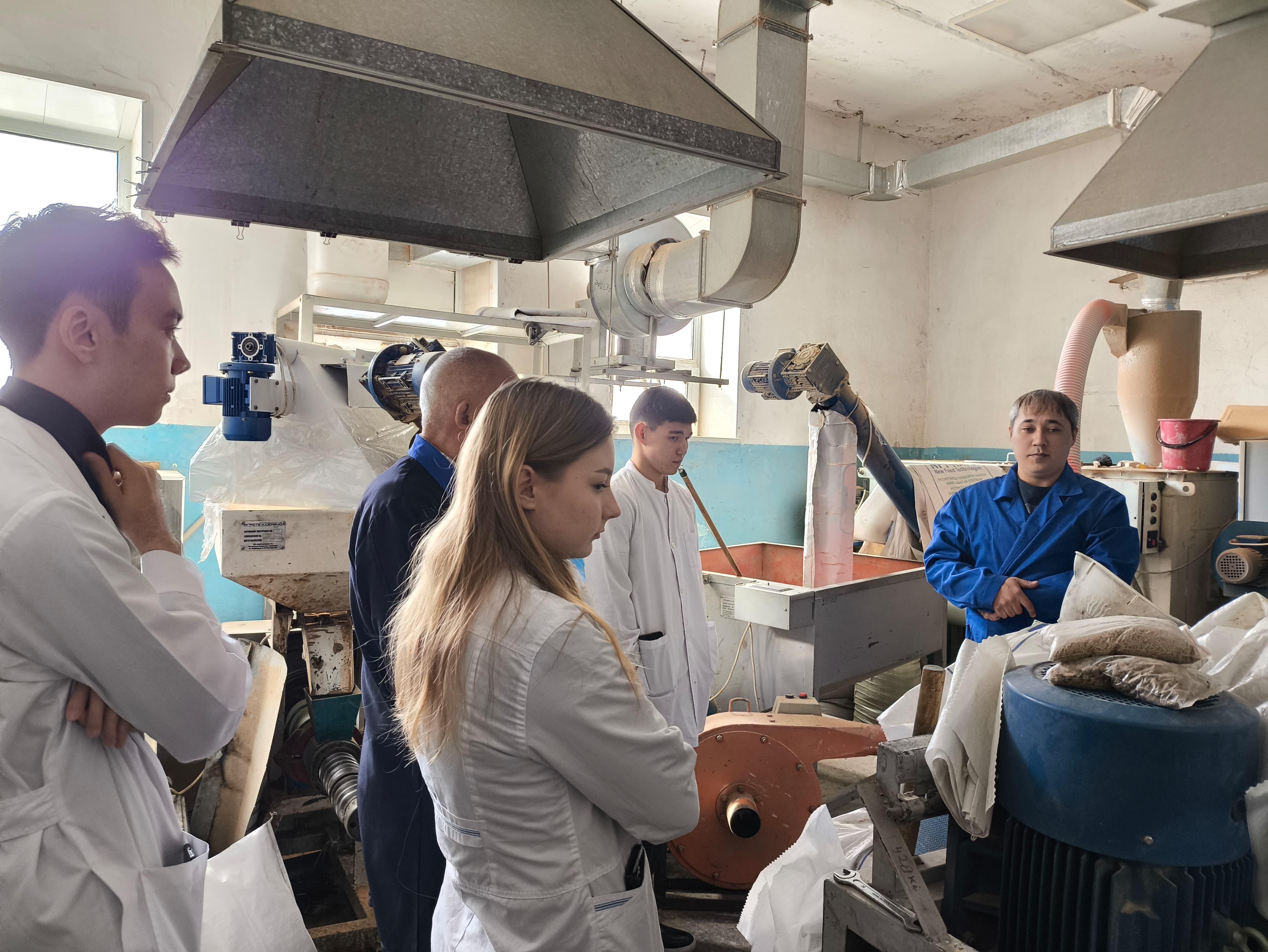On March 17 and 19, 2025, laboratory-practical classes on the topic "Feed Additives of Biotechnological Origin" were conducted for third-year students of groups 03-050-22-11a and 22-11b from S. Seifullin Kazakh Agrotechnical and Innovation University (KATIU) at the production-testing workshop of LLP "NFT-KATU." The sessions were led by research associate Evgeny Gennadievich Mayer and Tleukhan I. Kulmagambetov, Associate Professor of the Department of Microbiology and Biotechnology.
Evgeny Gennadievich Mayer provided a detailed explanation to the students about the significance of extruded feed and its use in the fattening of pigs, horses, and cattle, as well as the effects of its application for increasing milk and meat productivity.
The students were introduced to the equipment used in the workshop and its purpose in the production of extruded feed, including: PE-350 extruder, PG-400 pelletizer, SG-800 mixer, PD-2000 pneumatic crusher, cooler, mixing hopper with a discharge screw, and others.
The biotechnological process of producing extruded feed was briefly and clearly explained. During feed preparation, the grain undergoes short but intense mechanical and barothermal treatment due to high temperatures (110-160°C), pressure (up to 50 atm), and shear forces in the extruder's screw mechanisms. As a result, structural-mechanical and chemical changes occur in the raw material. The sudden pressure drop upon the exit of the heated grain mass causes an "explosion" (volume expansion) of the product, making it more accessible to the action of stomach enzymes in animals and increasing digestibility to 90-95%.
It was noted that during extrusion, starch breaks down into simple sugars, harmful microflora is sterilized, and the vitamins and amino acids present in the grains are almost entirely preserved due to the short processing time.
Students' questions regarding the production and use of extruded feed were answered comprehensively and in detail.
The laboratory-practical training was conducted at a high level. The students supplemented their theoretical knowledge with practical experience. The session was focused on solving practical tasks and understanding theoretical knowledge in the context of a biotechnologist's professional activities.
